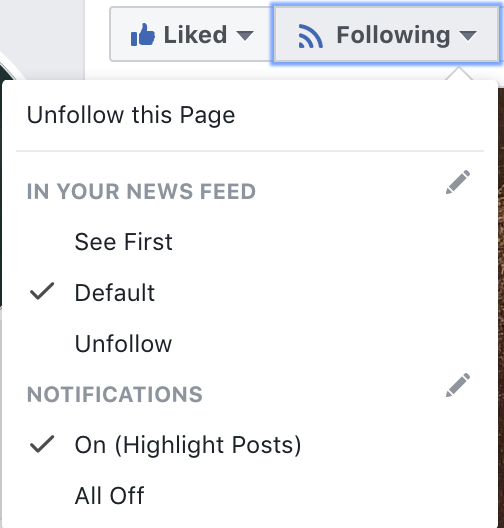Social Media for Musicians
I’d like to reiterate what many have been saying lately: social media for musicians can be a curse. Most people are aware that platforms like Facebook have become more controversial than ever before; Attack Magazine, for example, has written about how difficult it has been lately. I’ve been asked to comment on social media use for artists since many readers felt that I have been using these platforms “properly” (glad you think so by the way!), so let me share with you some of my views and observations on this topic.
For those of you who complain that it’s been difficult to build a following or audience on social media, it’s true that you’re up against a large number of other people who are trying to do the same thing. You’re basically fighting the whole wide world to be seen and heard. On top of that, people’s attention spans are limited, and being in the right place at the right time is challenging. Nils Frahm recently announced that he was deleting his artist page on Facebook and his online presence as well to be more present in the “real” world. It’s great that bigger artists can do this, but what about smaller artists? Is that doable?
I’ve been careful in coming up with my own theories, recipes, and routines that could make a difference with regards to how to approach social media. Things change quickly; what worked for years may at any time, fail. There are no consistent guarantees of anything.
This reminds me of an an old debate in the electronic music scene in which one side is represented by artists that want to play the “mysterious artist” card, and on the other, by artists who want to be visible everywhere. There are a number of people who’ve succeeded using both approaches and end up becoming an inspiration or norm for everyone trying to create a similar response. Is one approach better than the other? I honestly have no idea, but if you embrace either side, do it 100%.
What you want to do first as an artist is to figure out your initial “marketing” intentions: will you be low key, or accessible? The position you take has to be one that feels natural, and a good match with your personality and values. I’ve seen very social and outgoing people wanting to be mysterious, but then struggle in not being able to connect with people who want to get in touch. Honestly, with the way Facebook is running its algorithms, we’re all back to square one anyways and have fallen – without our consent – into the position of becoming more low key than ever. Just before writing this post, I spent a good hour on Facebook to see if any news from artists I follow would pop in my feed; no artists or labels I follow showed up. I needed to make a change in my following options to “put first” on music pages in order to get any news at all. So in a way, what’s the point?

The only platforms where I was actually fed some news from artists I follow automatically were Soundcloud, Spotify and Instagram.
Following an artist’s personal page on Facebook is a bit more useful; I see information as it’s posted. I’m just confused sometimes as to why people post a constant flux of self-promotional content – this is exactly why I will unfollow them. When someone is complaining that his or her online presence isn’t generating any traction, I often have the impression that there might be some online etiquette that hasn’t been respected and the person’s online behaviour might be characterized as annoying by other people.
Before social media, promoting your music was more confusing, but there were things you could still do. That said, it wasn’t easier than today (trust me), and the idea of reaching out the world was very daunting. Even still, there were ethics regarding promotion even back then; these rules seems still seem applicable to social media today. Here are a few pieces of advice about promoting yourself based on some of those rules:
Start small and go where it resonates. I frequently see people asking friends to listen to their music and then feel resentment because there’s no interest. The question is, why would friends bother? I know this sounds harsh but it’s true. It’s not because you make music that you’re entitled to attention. Making music is easier than ever, and many people are also DJing now. Even though this is good and can help artists meet many other producers, it still doesn’t make an artist special. Is that depressing to you? If yes, you’re in for a lot of frustration. Starting small is the best thing you can do. Back in the 90s, making a tape as a demo was a big deal and I’d make copies for friends who’d ask; no more. The great thing about tapes was that people would play them in their homes and cars. Other people would hear the tape and ask how they could get a copy for themselves. Things would flow organically to the right ears, and the people who would come to you would be the people you’d want to invest in; the same thing still applies today. Social media is an illusion that you can grow fast and with random people, but in reality the percentage of people that will really engage with you is still extremely small; your organic reach. Once in a while you’ll see someone do something brilliant and it will go viral, but this is usually the result of being in the right place at the right time. “Going viral” is similar to writing a hit song, as I explained in a past post. You can’t really control or predict hits, but if you focus on immediate, interested people, they might relay it to others, increasing your chances of success.
Social media is a distraction. If you spend a lot of time on social media to try to make an impact on your career, I’d encourage you to spend more time on Youtube instead, learning music production techniques. “Yeah, but that’s not going to get me bookings”, I hear you say. Of course it won’t, but maybe you need to focus on your craft first, and once it’s easy to sell, the bookings might be automatic. I’ve been working in one-on-one coaching with people, and we’ve been focusing and really nailing down all the important things one person needs to have top performances and solid productions. Afterwards, I often hear people say “I feel embarrassed I spent so much time wanting attention when I wasn’t ready for it at all.”
Forget people who are close with you as being reliable sources of support and understanding. This one was hard for me, but once I understood it, I felt way more at peace with my life. What this means to me is that I don’t ask people for anything. I don’t force-feed anyone about what I do, and I’m never pushy either. I tell people what I do, and if I have a gig, I’ll mention it. One thing I’ve learned over time is that most of the people who say they’ll come to see me play rarely do, and that the ones who show up are usually random people I don’t expect. Same goes for feedback about music I make that I share with my loved ones. I honestly appreciate their feedback, but also take it with a grain of salt.
Over the years, I’ve realized that what really made sense for me was to build a small circle of 5 reliable people. Not just for feedback but also for action. There are other people who could help but they are slow to reply or just ghost on me. I have no time or energy for these folks unfortunately. I focus on people who focus on me, and we all grow and get results, together.
Is there reliable advice then regarding how an artist should use social media?
Yes and no. I would say that maintaining a social media presence is important, but without making it an obsession or attaching too much importance to the numbers behind it. Yes, labels and promoters look at social media numbers and interactions, which could make a difference. But most people are looking for content, integrity, and originality. This is why I think Instagram and Soundcloud are important; they’re mostly to connect with others who share the same passion as opposed to trying to market to random people that you have some “unique talent”. Appreciation for your work will come from the music you put out, and if done right and with patience, your music will create its own results.
SEE ALSO : Choosing a genre for your music

 Guerilla Marketing can be defined as a “low cost and sometimes disruptive marketing strategy to see the viability of an idea.” But mainly, it’s about doing something unusual to get attention. The best example I can share from my own experience would be one marketing blast I was part of in the early 2000s when Netlabels emerged, giving away music for free online and through any other possible channels. Giving away quality music was disruptive but also in tune with people who, back then, were also interested in getting music for free (note: it was in the golden age of music piracy and illegal downloads). In Montreal, in 2017, when it was said cannabis was going to be legalized, there was a guy who illegally opened four stores to sell it. He knew it was illegal and once it was shut down, everyone understood it was a publicity stunt for when it would be legal.
Guerilla Marketing can be defined as a “low cost and sometimes disruptive marketing strategy to see the viability of an idea.” But mainly, it’s about doing something unusual to get attention. The best example I can share from my own experience would be one marketing blast I was part of in the early 2000s when Netlabels emerged, giving away music for free online and through any other possible channels. Giving away quality music was disruptive but also in tune with people who, back then, were also interested in getting music for free (note: it was in the golden age of music piracy and illegal downloads). In Montreal, in 2017, when it was said cannabis was going to be legalized, there was a guy who illegally opened four stores to sell it. He knew it was illegal and once it was shut down, everyone understood it was a publicity stunt for when it would be legal.
 Ok, so how can we apply that in practice? How do we get started from scratch?
Ok, so how can we apply that in practice? How do we get started from scratch?